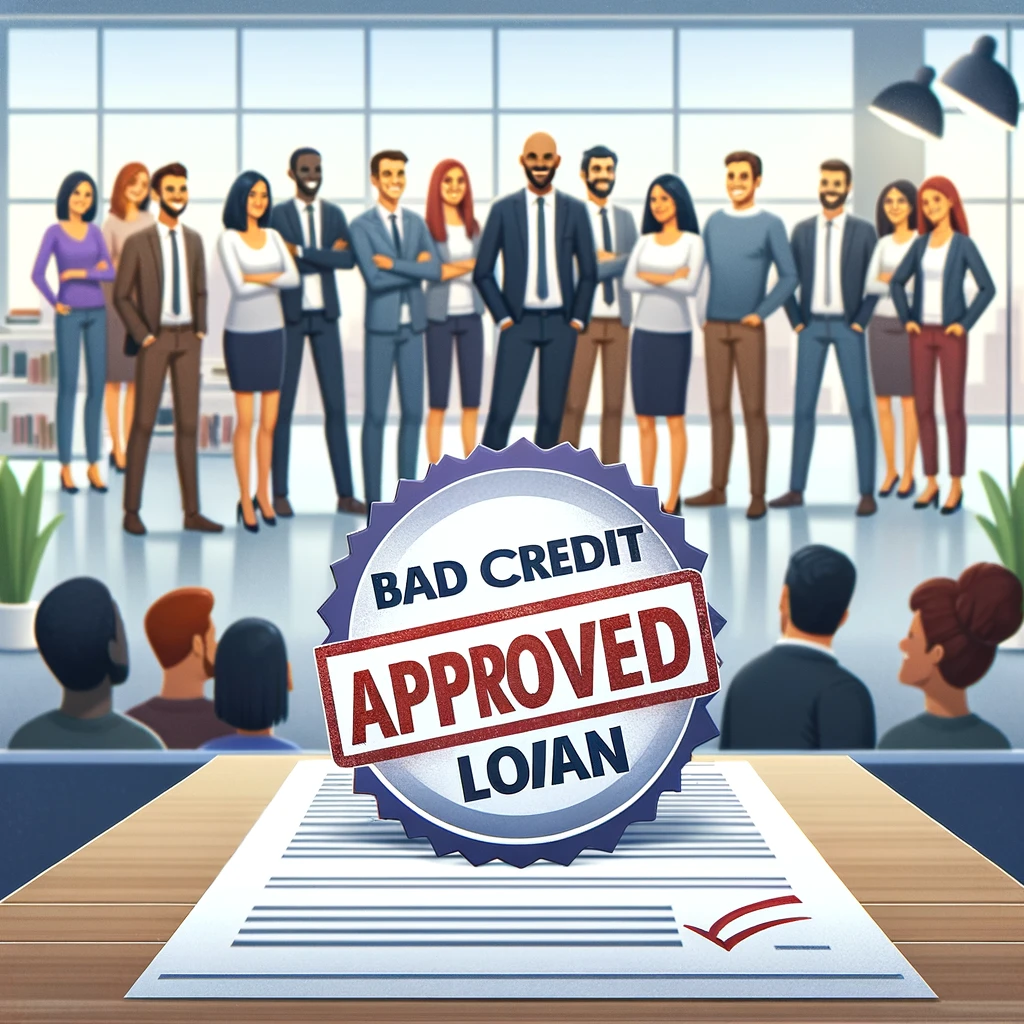Emergency Loan Bad Credit Guaranteed Approval Direct Lender

The promise of quick financial relief can be alluring, especially when facing urgent expenses and hampered by a poor credit history. Companies offering "Emergency Loan Bad Credit Guaranteed Approval Direct Lender" services are increasingly visible online, preying on vulnerability and offering what seems like a lifeline to those in desperate need.
However, the reality behind these enticing offers is often far more complex and potentially harmful than advertised. Borrowers need to understand the true costs, risks, and potential consequences of pursuing such loans. This article delves into the world of emergency loans for bad credit, examining the claims made by direct lenders, the associated dangers, and the alternative options available to those seeking immediate financial assistance.
The Allure of "Guaranteed Approval"
The phrase "guaranteed approval" is a significant red flag. Legitimate lenders always assess risk, evaluating a borrower's ability to repay a loan based on factors like income, employment history, and existing debt. There's no such thing as a truly guaranteed loan,
warns the Federal Trade Commission (FTC) on its website, emphasizing that promises of guaranteed approval should be met with extreme skepticism.
Direct lenders that advertise guaranteed approval often operate outside the bounds of traditional lending practices. They might be payday lenders, title loan companies, or even predatory operations designed to trap borrowers in a cycle of debt.
Understanding Direct Lenders
The term "direct lender" suggests a streamlined process, cutting out the middleman and offering faster access to funds. While some legitimate direct lenders exist, those marketing specifically to individuals with bad credit should be carefully scrutinized.
According to the Consumer Financial Protection Bureau (CFPB), many of these lenders charge exorbitant interest rates and fees. These charges can quickly turn a small loan into a massive debt that's difficult to repay.
The Dangers of High-Interest Loans
The primary danger associated with emergency loans for bad credit is the exceptionally high interest rates. These rates, often expressed as an Annual Percentage Rate (APR), can range from 300% to over 600%, far exceeding the interest rates charged by traditional lenders.
This means that borrowers could end up paying many times the original loan amount in interest and fees alone. For example, a $500 loan with a 400% APR could accrue hundreds or even thousands of dollars in interest within a few months.
Failure to repay these loans can lead to a cascade of negative consequences, including damaged credit scores, collection calls, wage garnishment, and lawsuits. These consequences can have long-term effects on a borrower's financial well-being.
The Debt Trap
Many borrowers who take out these loans find themselves trapped in a cycle of debt. They struggle to repay the original loan and interest, forcing them to take out new loans to cover the old ones.
This cycle can be incredibly difficult to break, leading to chronic financial stress and instability. The Center for Responsible Lending has extensively documented the ways in which predatory lending practices contribute to financial hardship.
Alternative Options for Emergency Funding
Before resorting to emergency loans with potentially crippling terms, borrowers should explore alternative options. These options might not be as readily available or convenient, but they are generally safer and more sustainable in the long run.
Consider these alternatives:
- Personal Loans from Credit Unions or Banks: Credit unions and banks often offer personal loans with more reasonable interest rates, even to individuals with less-than-perfect credit.
- Credit Card Cash Advances: While still carrying high interest rates, credit card cash advances may be a better option than payday loans or title loans.
- Negotiating with Creditors: Contact creditors to explain the situation and request a payment plan or temporary forbearance.
- Seeking Assistance from Non-Profits: Many non-profit organizations offer financial assistance, counseling, and resources to individuals in need.
Remember that building an emergency fund, even a small one, can provide a crucial safety net in times of financial crisis. Prevention is always better than cure.
Protecting Yourself from Predatory Lending
It's crucial to be vigilant and informed when seeking financial assistance. Be wary of lenders who make promises that seem too good to be true. The Better Business Bureau (BBB) is a valuable resource for checking the reputation of lenders and reading consumer reviews.
Always read the fine print of any loan agreement, paying close attention to the interest rate, fees, repayment terms, and any penalties for late payments. If you don't understand something, don't hesitate to ask for clarification or seek advice from a financial advisor.
Never feel pressured to sign a loan agreement if you are unsure or uncomfortable with the terms. Taking the time to research and compare options can save you from making a costly mistake.
The Road Ahead: Regulation and Consumer Education
The proliferation of emergency loans for bad credit highlights the need for stronger regulation of the lending industry. Consumer advocacy groups are actively working to protect borrowers from predatory lending practices and promote responsible lending standards.
Increased consumer education is also essential. By empowering individuals with the knowledge and resources they need to make informed financial decisions, we can help prevent them from falling victim to these deceptive loans.
While the promise of a quick fix is tempting, it's crucial to remember that there are no shortcuts to financial stability. Building good credit, saving for emergencies, and seeking advice from trusted sources are the best ways to protect yourself from the dangers of predatory lending. Ultimately, financial well-being is a journey, not a destination.








